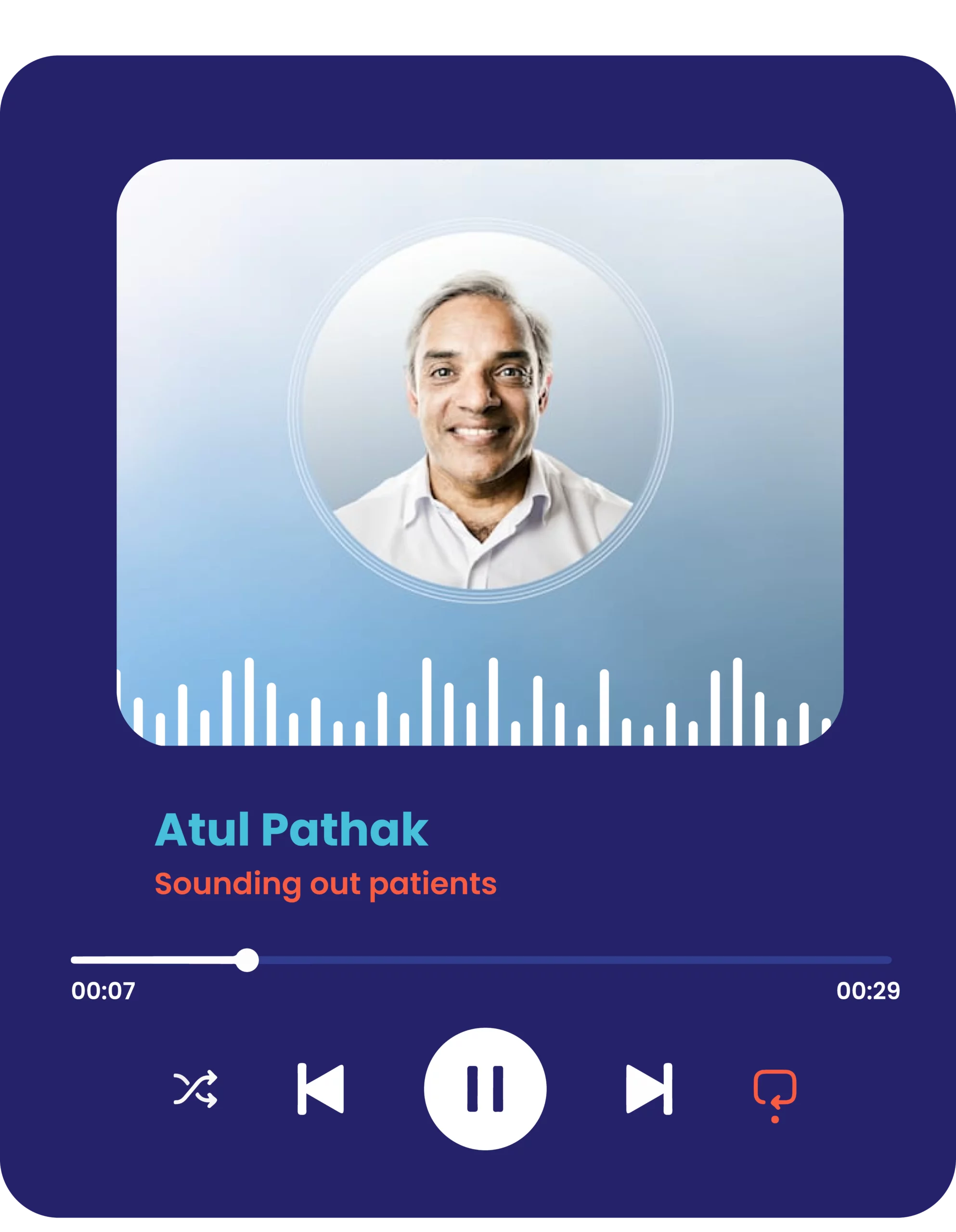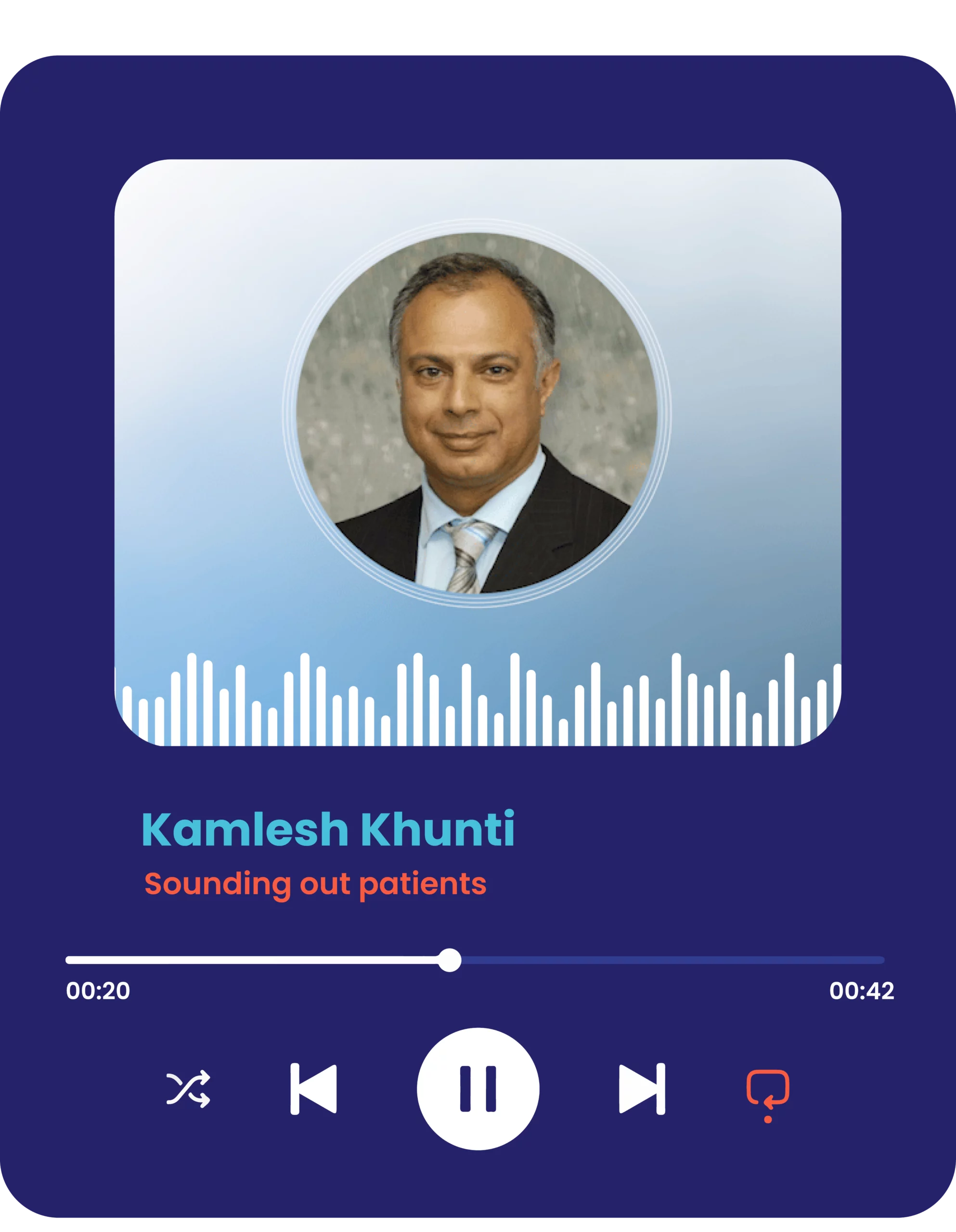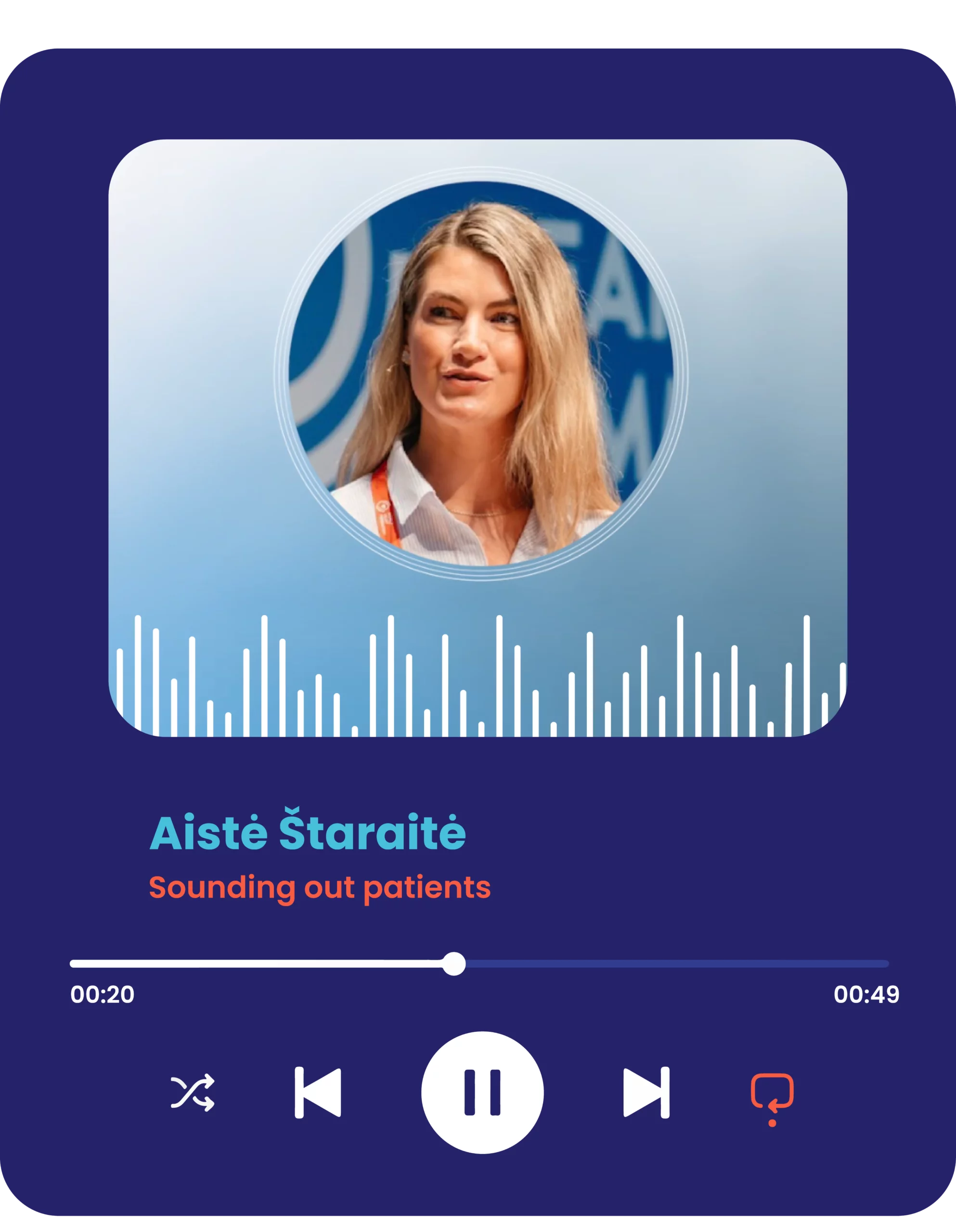Mobilizing to raise awareness
Currently, over half of chronically ill patients do not take their medications as prescribed1. The impact of this on their health and quality of life is often underestimated. Furthermore, lack of adherence significantly affects the costs incurred by health care systems worldwide.
The problem is particularly complex when it comes to chronic diseases, notably cardiovascular diseases. These account for 1.7 million deaths a year in the European Union, or around 37% of all deaths2. Yet up to 50% of patients with chronic diseases do not adhere to their treatment3.
Did you know?
The World Health Organization (WHO) defines therapeutic adherence as the extent to which a person’s behavior – taking medication, following a diet, and/or making lifestyle changes – corresponds to recommendations agreed with a health care provider.
The WHO, the OECD and the European Commission have therefore issued a call for action. In Europe alone, better adherence could save around 200,000 lives every year and alleviate costs to health care systems and society4 by €125 billion.
Bearing witness: Perspectives to gain understanding and take action
To better understand the sometimes complex reasons for a patient’s non-adherence, Politico created a series of podcasts featuring health care professionals and patient association representatives. Through captivating interviews, the issue of therapeutic adherence is tackled from different angles, allowing renowned experts to share their knowledge and experiences and also offer best practices to help patients adhere to their treatments.

Atul Pathak, MD, PhD, Cardiologist and Pharmacologist, and head of the department of cardiovascular medicine at Princess Grace Hospital in Monaco

Kamlesh Khunti, Professor of primary care diabetes and vascular medicine at the University of Leicester in the U.K

Rosa de Pinho, general doctor, and a hypertension consultant at USF Vale do Vouga in São João da Madeira

Arnaud Lallouette, Executive Vice President, Global Medical & Patient Affairs, Servier

Aistė Štaraitė, the development executive and council lead for Heart Failure, as well as past chair of the Heart Failure Patient Council, at the Global Heart Hub
Innovating to improve patient health
The initiative undertaken with Politico aims to bring about tangible changes in how therapeutic adherence is approached. By providing valuable information along with varied yet complementary perspectives, the conversations that Politico and Servier have engaged in strive to inspire concrete, collective actions to improve quality of care and patient well-being.
In addition, by working with patients and forming partnerships with them and the associations that represent them, health care providers will be able to find solutions to counter lack of therapeutic adherence. Arnaud Lallouette, Cardiologist and Executive Vice President of Global Medical & Patient Affairs for Servier, shares his insights: “Patients today are increasingly taking charge of their health and are fully involved in this ecosystem. They inspired us and pushed us to work not only for them but also with them, as early as possible rather than in the later stages when treatments are already available on the market. That makes sense because they live with their disease, they know their own needs and they want to be involved in the treatment they receive. They are experts in the disease and its burden.”
Learn more: Therapeutic adherence, the missing piece to treat chronic diseases
Single Pill Combinations (SPC) also represent a major innovation in the daily lives of patients with a chronic disease such as hypertension, diabetes or dyslipidemia. SPCs are medications that combine several treatments in a single pill. They make it easier for doctors to prescribe treatments and for patients to take their medications, thus promoting therapeutic adherence. SPCs are an important breakthrough enabling patients to take better control of their disease and to prevent possible complications.
Learn more: Single Pill Combinations: A solution to foster therapeutic adherence
Servier believes that therapeutic adherence is one key to improving the efficacy of treatments to serve patients. As the world’s fifth largest pharmaceutical company specializing in cardiology5, Servier has made therapeutic adherence one of its top priorities.
Raising awareness for collective action
The partnership with Politico is part of a series of initiatives undertaken by the Servier Group to raise awareness on the importance of adherence in the health care sector. For example, at an event organized at the European Parliament on January 30, 2024, Servier teamed up with learned societies, patient associations and several stakeholders in the health care industry to spread the message of therapeutic adherence as widely as possible. The initiative was repeated on May 28 at the World Health Assembly organized by the WHO in Geneva.
In its report on non-communicable diseases, the European Parliament defined adherence to treatment as a “crucial point in the European strategy against non-communicable diseases6.” The report urges EU member states to take this issue on board and define ambitious policies in this area.
[1] Adherence to Long-Term Therapies: Evidence for action. World Health Organization 2003
[2] Timmis et al., 2022 https://www.eea.europa.eu/publications/beating-cardiovascular-disease#:~:text=It%20is%20the%20most%20common,2022%3B%20WHO%2C%202022).
[3] Fred Kleinsinger (2020), “The Unmet Challenge of Medication Nonadherence”, The Permanent Journal 22. DOI: 10.7812/TPP/18-033. Accessed 12 September 2023
[4] Institut Sapiens (2023), Améliorer l’adhésion thérapeutique : un enjeu de santé publique. Available in French at: https://www.institutsapiens.fr/wp-content/uploads/2023/06/Ameliorer-ladhesion-therapeutique-V1.pdf Accessed 12 September 2023
[5] IQVIA, Analytics Link / World 75 countries – MAT Q3-2023
[6] Report on non-communicable diseases (NCDs), European Parliament (2023). Available at: https://www.europarl.europa.eu/doceo/document/A-9-2023-0366_EN.html
